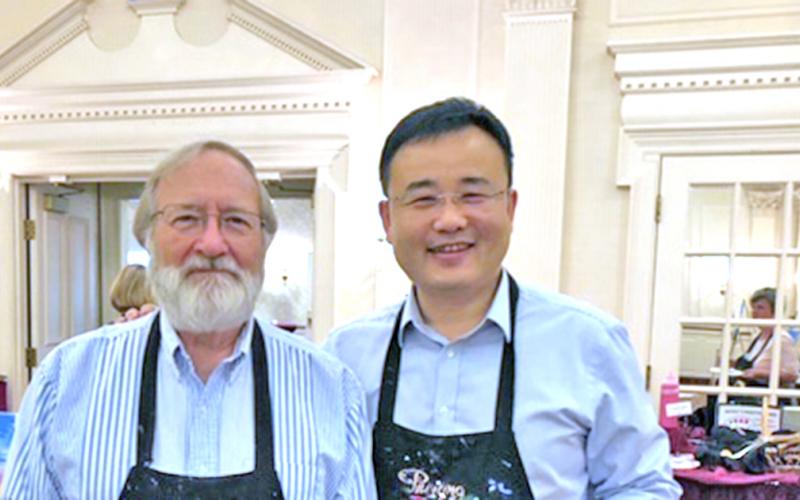Brave locals on the front lines of the coronavirus outbreak will benefit from the gift of someone they don’t know, who lives very far away.
That would be Tom Cai, a resident of Tianjin City in China and an employee of Vishay Intertechnology, who recently sent a sizable donation of masks, goggles and disposable gloves to Dahlonega.
Namely he sent the much needed goods to his former boss, local resident Don Clark.
Clark and Cai became friends through their association with Vishay.
“Tom reported to me for many years when I was Global Vice President. I’m now retired, but we have kept in touch,” Clark said.
“He is my former boss and mentor of my career,” Cai, who is now Senior Director of Infrastructure, Environmental Health and Safety for Vishay Asia said.
Originally, Cai sent a small shipment of masks to Clark, thinking they would help keep him and his family healthy and safe.
“I am impressed by Don, that he donated those PPE to doctors and medical providers immediately when he received [them]. It transcends my original thinking and lets this activity become more meaningful,” he said.
Last week a larger shipment, including goggles and gloves, arrived at the Clarks’ residence.
This donation will go to the ER at Northeast Georgia Medical Center-Lumpkin County, Urgent Care, Gold City Nursing Home, Community Helping Place, and the office of Dr. Richard Wherry and the office of Dr. Kimberly Kurtz.
Cai lives far from Wuhan, the epicenter of the original COVID-19 outbreak. Tianjin City is about 746 miles from Wuhan.
The situation where he, his wife and teenage daughter live, he said, “was not too bad … even in the critical period because the city strictly took some countermeasures to fight the coronavirus from the end of January.”
A total of 180 cases from January to present were diagnosed in Tianjin City. Of those, three people died, and 33 are still in a specialized hospital for further treatment.
Another measure taken by the inhabitants of all of China was the mandatory wearing of masks. That began at the end of January, when Wuhan was locked down, Cai said.
“Once in short supply, these masks are now abundant and required for certain activity only in China,” Clark said.
Cities have been able to loosen the restriction “due to their local situation being much better—no new cases in 14 days,” Cai said.
In all, he said, it has taken about two months for the virus to be controlled in China.
“Now it is still a mandatory requirement in Tianjin because recently there [have been] a new imported case from overseas Chinese when they [came] back to Tianjin,” he added.
Cai said he and the Chinese people were “deeply touched when we received many donations from the USA, Europe, Japan, South Korea and others in Asian countries.
“And meanwhile, I received many concerned emails from my overseas colleagues in [the] USA, Germany and Israel, [including] Mr. Don Clark, my former boss and mentor of my career. … At this time, I thought I need to do something for my overseas colleagues and friends, so I sent some masks and PPE to them. It is only what I can do for my friends in this critical period,” Cai said.
“I hope this draws attention to good personal relations that cross political and geographic boundaries,” Clark said, “and provides a counter-response to today’s reactionary views.”
Image
Body

